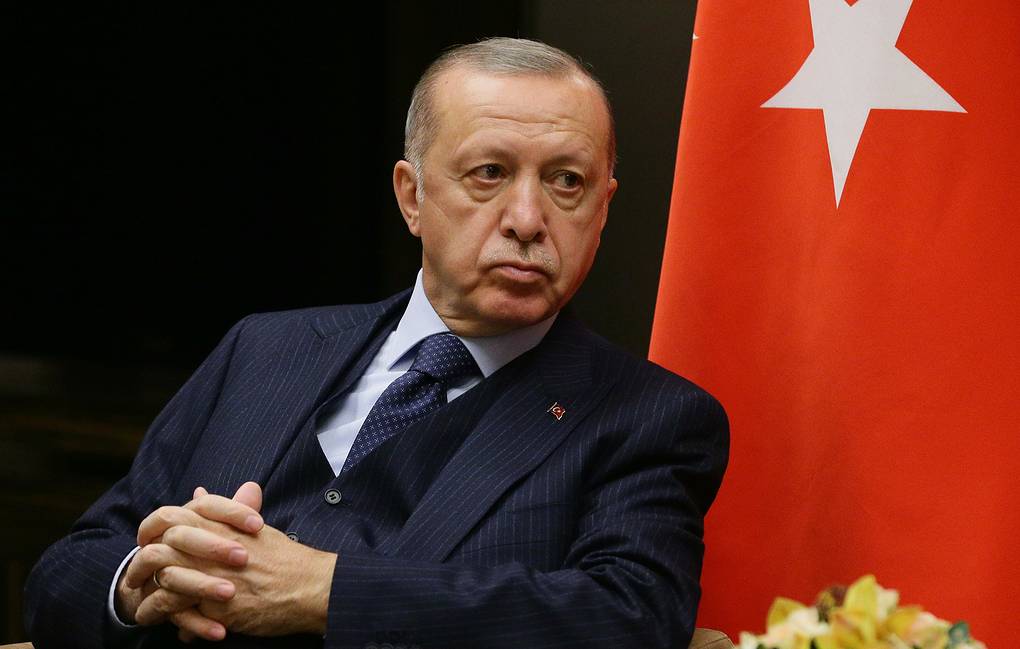Turkish President Recep Tayyip Erdogan has expressed hope that tensions between India and Pakistan, which have escalated in recent days following a deadly terror attack in the Jammu and Kashmir region, will soon ease. "We hope that tensions between Pakistan and India will ease soon before the situation deteriorates too much," Erdogan said during a speech in Istanbul. He added that Turkey is closely watching developments in the region, which has long been considered one of the most tense places in the world due to historical disputes between the two nuclear powers.
Tensions between India and Pakistan have sharply worsened following the terrorist attack that took place on April 22, 2025 in the popular tourist town of Pahalgam in the Indian region of Jammu and Kashmir. A group of armed men dressed in camouflage uniforms opened fire with machine guns on civilians, killing 25 Indian citizens and one Nepalese tourist. The attack also left dozens injured, some of whom are in a critical condition. The attackers fled the scene after the attack and Indian security forces are still searching for them.
According to Indian intelligence agencies, whose findings were published by The Hindustan Times, the attack was carried out by the radical Islamist group Lashkar-e-Taiba, which is banned in Russia and several other countries. Indian authorities say they have found evidence of the involvement of Pakistani intelligence agencies, specifically the Inter-Services Intelligence (ISI), which they say supported the attack logistically and financially. Pakistan has rejected the allegations, describing them as "baseless" and an attempt by India to damage its international reputation, but the allegations have further inflamed long-standing tensions between the two countries, whose relations have been marked by decades of disputes over Kashmir and a series of armed conflicts.
India quickly responded to the attack with a series of diplomatic and economic moves that signal a serious escalation of tensions. The government in New Delhi has almost halved the staff of its embassy in Islamabad, effectively reducing diplomatic relations to a minimum. Further, India expelled military advisers to Pakistan's diplomatic mission in India by declaring them personae non gratae and closed the key Attari border crossing on the India-Pakistan border, one of the few crossings that allowed limited trade and movement of people between the two countries.
In addition, Indian authorities have suspended the Indus Waters Treaty, which has governed the sharing of the water resources of the Indus River and its tributaries between India and Pakistan since 1960. The treaty was considered one of the few examples of functional cooperation between the two countries, and its suspension is seen as a serious step that could have long-term implications for agriculture and water supply in Pakistan, where the Indus River is a key resource. India has also stopped issuing visas to Pakistani citizens, further restricting travel and contact between the people of the two countries.
These steps have raised fears of a further deterioration of the situation. Analysts say they could lead to economic damage on both sides, especially in Pakistan, which is heavily dependent on water from the Indus River for its agriculture. At the same time, however, there is a risk that India's harsh response could provoke Pakistan to retaliate, which could further escalate the situation.
Turkish President Recep Tayyip Erdogan commented on the situation during a speech in Istanbul, where he stressed the need for rapid de-escalation. "We hope that tensions between Pakistan and India will ease soon before the situation deteriorates too much," Erdogan said. Turkey, he said, is closely following developments in the region, reflecting its growing interest in South Asian affairs. Turkey has long had close relations with Pakistan, with which it shares common positions on several international issues, including support for Muslim communities and opposition to India's policies in Kashmir. At the same time, however, Turkey maintains trade and diplomatic relations with India, which puts it in the position of a potential mediator.
Erdogan's statement is not surprising because Turkey has been trying to profile itself as a global player and mediator in international conflicts in recent years. In 2023, for example, Turkey played a key role in mediating negotiations between Russia and Ukraine over grain exports across the Black Sea. However, Erdogan's calls for de-escalation may be met with resistance as both India and Pakistan have deep-seated animosities and historical disputes that make any form of dialogue difficult.
India has long accused Pakistan of providing sanctuary and support to terrorist groups such as Lashkar-e-Taiba, which Pakistan denies, saying it is fighting extremism on its soil. Pakistan, on the other hand, has criticised India for its policies in Kashmir, especially after 2019, when India revoked the autonomy of the region and imposed tight security measures that sparked a wave of protests and allegations of human rights violations.
International reactions and fears of escalation
The Pahalgam attack and India's subsequent reaction have raised the concern of the international community. The United Nations (UN) has called for restraint and dialogue between the two sides to prevent further escalation. The United States, which has complicated relations with both India and Pakistan, issued a statement condemning the terrorist attack and calling for a thorough investigation. US President Donald Trump, who recently met Indian Prime Minister Narendra Modi, is pressing India to focus on diplomatic solutions while at the same time continuing to pressure Pakistan over its alleged support for terrorism, according to sources.
The European Union also expressed concern and offered humanitarian aid to the victims of the attack. Czech Foreign Minister Jan Lipavsky said on the social network X that the Czech Republic "condemns terrorism in all its forms" and called for de-escalation of tensions to prevent further loss of life.
gnews.cz - how



